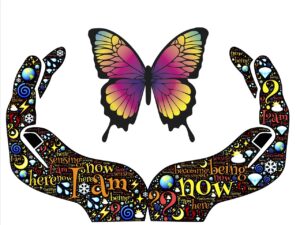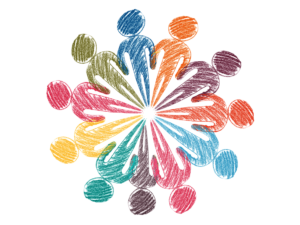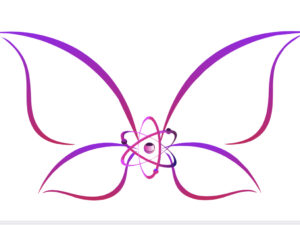Free Clarity Call
- Discuss your goals and challenges to achieve
- Check right fit for coaching
- Questions on the milestones and process
Frequently Asked Questions
How is Act To Transform Coaching different from others?
Act To Transform is not a coaching “style”. Its a way of living, for people who wants to understand how we can get more from life, why things do not work as per our wishes and what it takes to achieve balance and eventually peace & happiness.
We use a combination of learnings from the Vedas, Astrology, Ayurveda, Yoga sutras to understand an individual. Basis our evaluation we devise a customised roadmap for overall well-being, which focuses on the three layers of physical, astral and causal.
We believe if the energy nodes within us are functioning well, we can achieve anything, while being in harmony and balance.
What is coaching?
Coaching is a process of helping individuals achieve their personal and professional goals. This can involve working with clients to identify their values and priorities, developing strategies to overcome obstacles, and providing support and accountability to help clients stay on track.
A great life coach would emphasize that coaching is a collaborative and client-centered process, where the coach serves as a guide, facilitator, and accountability partner. The coach would work with the client to clarify their goals and objectives, identify potential obstacles, and develop an action plan to help them achieve their desired outcomes.
Additionally, a skilled coach would emphasize that coaching is not the same as therapy or counseling. While coaches may help clients explore their emotions and beliefs, their focus is primarily on identifying and achieving specific goals, rather than addressing deep-seated psychological issues.
Overall, the best life coaches would view coaching as a powerful tool for personal growth and development, helping individuals unleash their full potential and live a more fulfilling life.
Who hires a life coach?
Individuals from all walks of life may choose to hire a life coach to help them achieve their personal or professional goals. Some common reasons why people hire life coaches include:
- Career Advancement: Many individuals hire a life coach to help them advance their careers, whether it’s through improving their skills, finding a new job, or starting their own business.
- Personal Growth: Some people hire a life coach to help them achieve personal growth and development, such as improving their relationships, overcoming limiting beliefs, or finding greater fulfilment in life.
- Health and Wellness: Others may hire a life coach to help them achieve better health and wellness, whether it’s through losing weight, developing a fitness routine, or improving their nutrition.
- Life Transitions: Life coaches can also be helpful during major life transitions, such as starting a new job, getting married, or going through a divorce.
- Time Management: Many people hire a life coach to help them manage their time more effectively and achieve a better work-life balance.
In summary, anyone who is seeking guidance, support, and accountability to achieve their goals and improve their lives can benefit from working with a life coach.
Is coaching a type of therapy?
Coaching and therapy are related but distinct fields. Coaching is generally focused on helping individuals achieve specific goals and overcome obstacles in their personal or professional lives, while therapy is focused on addressing deeper emotional and psychological issues.
Coaching is typically future-oriented, and coaches work with clients to identify and achieve specific goals, such as starting a business, improving relationships, or achieving greater work-life balance. Coaches provide support, accountability, and guidance to help clients stay on track and overcome obstacles.
Therapy, on the other hand, is generally more focused on addressing emotional and psychological issues, such as depression, anxiety, trauma, or addiction. Therapists use a variety of techniques to help clients process their emotions, gain insight into their behavior and thought patterns, and develop coping skills to manage their symptoms.
While coaching and therapy are distinct fields, there may be some overlap in the techniques and approaches used by coaches and therapists. For example, both may use active listening, questioning, and goal-setting to help clients achieve their objectives. However, coaching is generally focused on achieving specific goals, while therapy is focused on addressing underlying emotional and psychological issues.
How does one become a life coach?
Becoming a life coach generally involves several steps, including:
- Education and Training: Many life coaches have a background in psychology, counseling, social work, or a related field. However, formal education is not always necessary to become a life coach. There are many life coach training programs available that can provide the skills and knowledge needed to work as a coach. Look for accredited programs with a proven track record of success.
- Develop Coaching Skills: Effective coaches need strong communication, active listening, and problem-solving skills. They also need to be able to build trust and rapport with clients, and provide motivation and accountability. Practicing these skills through role-playing exercises and real-world coaching experiences can help aspiring coaches develop their coaching abilities.
- Gain Experience: Building a successful coaching practice typically requires experience working with clients. Consider volunteering or working as an intern to gain experience and build your reputation as a coach. Many coaches start out by working with friends and family members, and gradually build their client base over time.
- Get Certified: While certification is not always required to work as a coach, it can help build credibility and increase your chances of success. There are several professional organizations that offer certification for life coaches, such as the International Coach Federation (ICF) and the International Association of Coaching (IAC).
- Build Your Practice: Once you have the skills, training, and experience needed to work as a coach, it’s important to market your services and build your practice. This may involve creating a website, networking with potential clients, and developing a marketing plan to attract new clients.
Overall, becoming a successful life coach requires a combination of education, training, experience, and marketing skills. It’s important to be committed, passionate, and willing to continually improve your skills and techniques to achieve your goals as a coach.
What is the difference between a coach and a consultant?
Coaches and consultants are both professionals who work with individuals or organizations to help them achieve their goals, but there are some important differences between the two:
- Focus: Coaches tend to focus on helping individuals and teams develop their own skills and abilities to achieve their goals. They may provide guidance and feedback, but they ultimately empower their clients to make their own decisions and take action. Consultants, on the other hand, tend to focus on providing expert advice and solutions to specific problems or challenges.
- Role: Coaches typically act as facilitators, guiding their clients through a process of self-discovery and goal-setting. They provide support, accountability, and motivation to help their clients stay on track and achieve their objectives. Consultants, on the other hand, tend to be more directive, providing specific recommendations and solutions based on their expertise and experience.
- Relationship: Coaching is often a long-term, collaborative relationship that focuses on ongoing development and improvement. Coaches work closely with their clients to identify and overcome obstacles, and they often provide ongoing support and guidance. Consulting, on the other hand, is often a short-term engagement focused on specific problems or projects.
- Methodology: Coaches often use a variety of coaching techniques and methodologies, such as active listening, questioning, and goal-setting. They may also draw on other disciplines, such as psychology, leadership theory, or organizational development. Consultants, on the other hand, typically use specific methodologies and tools to address specific business problems or challenges.
Overall, coaches and consultants both play important roles in helping individuals and organizations achieve their goals, but they have different approaches, roles, and relationships with their clients.
Packages & Pricing
-
Self Awareness
Duration: 60 Minutes for 3 sessions
-
Team Building
Duration: 4 Hour Activity Based Sessions for Team Building
-
The Journey
Duration: 6 Months with 12 Sessions of 30 Minutes each
-
Training Seminars
Duration: 2Hour Session on topics like Sales, Retention, Customer Centricity, Motivation and Self Development



